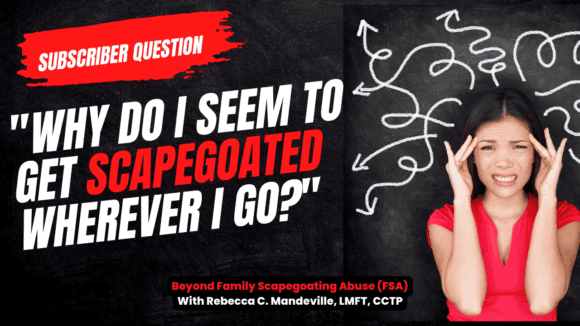Radical Acceptance and Scapegoat Recovery: The Power of Accepting What IS
Releasing attachment to highly charged emotions and events does not mean that one is “giving up” on themselves or “giving in” to abuse from others. It is simply a process that supports people in coping with past and/or current life circumstances that cannot be changed and that they are powerless over.




